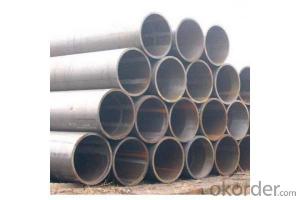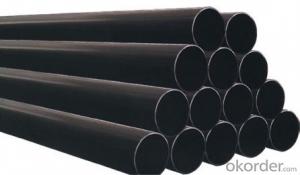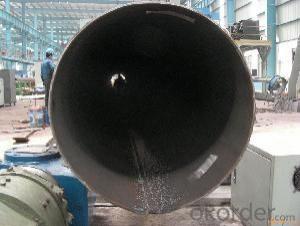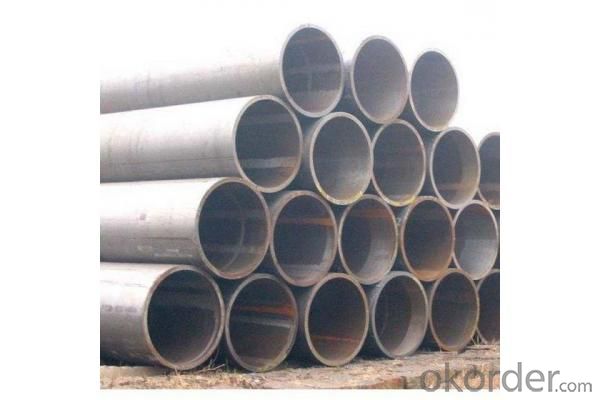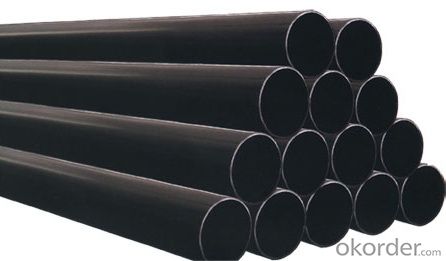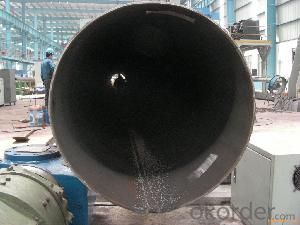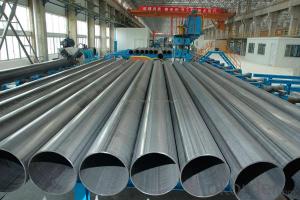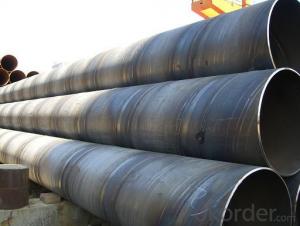LSAW SSAW CARBON STEEL PIPE ASTM API 16’‘
- Loading Port:
- Tianjin
- Payment Terms:
- TT OR LC
- Min Order Qty:
- 1 m.t.
- Supply Capability:
- 3000 m.t./month
OKorder Service Pledge
OKorder Financial Service
You Might Also Like
Packaging & Delivery
Packaging Detail: | Normal exporting packing,in container or bulk vessel or as per clients' request |
Delivery Detail: | 2 months after confimed contract |
Specifications
Large Diameter API 5L X70 PSL2 LSAW Steel Pipe
Grade: X42, X46, X50, X52, X60, B, C
OD: 1.5"-28"
WT: SCH10-SCH160
Large Diameter API 5L X70 PSL2 LSAW Steel Pipe
Specifications:
u Standard: API 5L
u Grade: B, C, X42, X46, X50, X52, X56, X60, X65, X70, X80
u OD: 1.5"-28"
u WT: SCH10-SCH160
u Length: 5-12m
u Ends Finish: plain end, bevel end, grooved end
u Surface Treatment: bare, black varnished, oiled finish, red color, anti-corrosion, 3PE, FBE or epoxy coating
u Technique: hot rolled or cold drawn
u Application: api 5l steel pipe for conveying oil, water, gas
u Invoicing: based on theoretical weight or actual weight
u Payment Terms: L/C at sight, T/T or Western Union
u Trade Terms: FOB, CFR, CIF
u Certification: ABS manufacturing assessment, ABS design assessment, API 5CT, API 5L, DNV manufacturer certificate, ISO9001 quality management system certificate, ISO14001 environment management system certificate, GB/T28001 occupational health and safety management system certificate, A1 class manufacturing license of special equipment certificate, CCS, GL, LR, SGS, TüV, PDE
- Q: Can steel pipes be used for underground irrigation systems?
- Certainly, underground irrigation systems can indeed utilize steel pipes. Steel pipes have gained popularity for irrigation systems owing to their exceptional durability, strength, and corrosion resistance. They have the capability to endure the immense pressure and stress associated with being buried underground, thus ensuring longevity without the need for frequent maintenance or replacement. Moreover, the smooth interior surface of steel pipes enables efficient water flow and minimizes the risk of clogging. Additionally, steel pipes are readily available in a variety of sizes and can be easily customized to meet specific requirements of irrigation systems. However, it is crucial to ensure that the steel pipes employed for underground irrigation systems are adequately coated or treated to prevent corrosion and extend their lifespan.
- Q: How do you transport steel pipes safely?
- Steel pipes can be transported safely by properly securing them using appropriate restraints, such as straps or chains, to prevent shifting or movement during transit. Additionally, using suitable equipment and vehicles, such as flatbed trucks or trailers, with adequate support and cushioning, can help ensure the safe transportation of steel pipes. Regular inspections of the securing arrangements and adherence to relevant safety regulations are also crucial to maintain the safe transport of steel pipes.
- Q: How are steel pipes used in the construction of stormwater drainage systems?
- Steel pipes are commonly used in the construction of stormwater drainage systems due to their durability and strength. They are used to create underground networks that efficiently channel rainwater away from urban areas, preventing floods and water damage. Steel pipes are resistant to corrosion and can withstand heavy loads, making them suitable for the long-term and reliable functioning of stormwater drainage systems.
- Q: What is the difference between internal coating and external lining of steel pipes?
- The main difference between internal coating and external lining of steel pipes lies in their purpose and location. Internal coating refers to the application of protective materials on the inner surface of the steel pipe, primarily to prevent corrosion, improve flow efficiency, and maintain the quality of transported fluids. On the other hand, external lining involves applying protective materials to the outer surface of the steel pipe, mainly for corrosion resistance, insulation, and protection against external elements. Therefore, while internal coating focuses on the interior protection and performance of the pipe, external lining shields the pipe from environmental factors and external damage.
- Q: What are the different types of steel pipe supports for thermal expansion?
- There are several types of steel pipe supports for thermal expansion, including rigid supports, flexible supports, and guided supports. Rigid supports are typically used for straight pipe runs and provide a fixed point of support. Flexible supports, such as spring hangers or variable spring supports, allow for vertical movement of the pipe due to thermal expansion. Guided supports, on the other hand, restrict movement in all directions except axial movement, helping to maintain the alignment of the pipe during thermal expansion.
- Q: What are the industries that commonly use steel pipes?
- Some of the industries that commonly use steel pipes include construction, oil and gas, manufacturing, transportation, and infrastructure.
- Q: Can steel pipes be used for gas transportation?
- Yes, steel pipes can be used for gas transportation. Steel is a commonly used material for gas pipelines due to its strength, durability, and resistance to corrosion. Steel pipes are able to withstand high pressures and are suitable for transporting both natural gas and propane. They are also capable of withstanding extreme temperatures, making them ideal for gas transportation in various environments. Additionally, steel pipes can be welded together, allowing for a seamless and continuous pipeline system. However, it is important to ensure that the steel pipes used for gas transportation are properly coated and protected against corrosion to prevent any leaks or damage to the pipeline.
- Q: How are steel pipes connected or joined together?
- Steel pipes are commonly connected or joined together through welding, threading, or using pipe fittings such as couplings, flanges, or unions.
- Q: How are steel pipes used in plumbing?
- Steel pipes are commonly used in plumbing for various applications such as water supply and drainage systems. They provide durability, strength, and resistance to corrosion, making them suitable for both residential and industrial plumbing. Steel pipes can be used for transporting water, gases, and other fluids, and are often connected with fittings and valves to create a reliable and efficient plumbing system.
- Q: What is the difference between internal threading and external threading of steel pipes?
- The difference between internal threading and external threading of steel pipes lies in the location and method of threading. Internal threading refers to the process of creating threads on the inside surface of a steel pipe, allowing it to be connected to other components with external threads. On the other hand, external threading involves creating threads on the outside surface of a steel pipe, enabling it to be joined with components having internal threads. These two methods serve different purposes and are utilized depending on the specific requirements of the plumbing or assembly project.
Send your message to us
LSAW SSAW CARBON STEEL PIPE ASTM API 16’‘
- Loading Port:
- Tianjin
- Payment Terms:
- TT OR LC
- Min Order Qty:
- 1 m.t.
- Supply Capability:
- 3000 m.t./month
OKorder Service Pledge
OKorder Financial Service
Similar products
Hot products
Hot Searches
Related keywords
